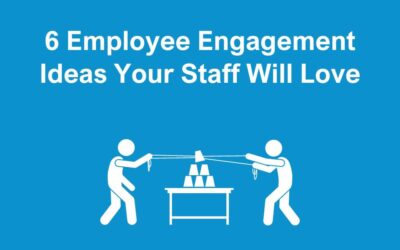An exit interview is an informal meeting with an outgoing employee before they leave. It gives your business the chance to obtain honest feedback from an employee who is leaving your employment.
For employees, these meetings are one of the last deep conversational interactions they may have with your business. It can allow staff the chance to give an open and honest review of their experience.
This can also give you a general insight into how you perform as a manager. They can teach you ways to repeat good experiences and avoid bad ones.
When both the employee and employer focus on learning and knowledge-sharing goals, exit interviews can also help working relationships end on a good note. Many times the feedback staff provide is positive. However, when it’s not, it gives you a valuable insight on how to fix things for your existing employees. This may assist you with your employee retention too.
Interviews provide you with one last opportunity to catch any lurking problems or issues. This helps you to resolve the problem before they seek external advice or retribution via a tribunal.
Here we share with you some key points to help you carry out an effective exit interview:
Plan the Exit Interview
Schedule the exit interview for a mutually convenient time during the employee’s notice period. It is helpful to allow the employee as much notice as possible so they can consider what they may wish to discuss with you beforehand.
It is good practice, wherever possible, to meet face to face to carry out this meeting. This will generally result in more productive conversations, and your employees may appreciate the gesture. This can also helps maintain a positive working relationship so that they leave on good terms. In addition, It will allow you an opportunity to arrange the return of any of the businesses property they may have i.e. mobile telephone, laptop, keys, uniform etc.
You should also make sure that you are conducting the exit interview in private. Ensure that you find somewhere appropriate to enable your employee to speak to you in confidence. This might mean taking the meeting off site somewhere, so make sure you factor this in to your planning.
We appreciate that it may not always be possible to meet your employee face to face, e.g. if they live in a different part of the country etc. You can still carry out the interview interview, instead you could conduct it by phone.
Be Prepared with Questions
While you never want the meeting to appear scripted, there are some key questions you want to touch on when you conduct exit interviews. You should also have consistency with your questions. This ensures you are asking the same questions in every meeting conducted, with every employee leaving. This enables you to compare responses and look for any common responses or themes that may need your attention.
Some key questions to consider asking:
- What influenced you to seek employment elsewhere?
- What could we have done to prevent you from leaving?
- What does the job you are going to offer you, that your job here did not?
- Is there anything that can be done to improve the situation that is causing you to leave?
- What did you most enjoy about working here?
- Is there anything that you didn’t like about working here?
- Are there ideas that you have that you wish you could have implemented while you were here?
Getting feedback from the employee can help you to identify any problems that may be underlying in your business. Asking questions like these can help you make improvements going forward and potentially prevent losing future employees.
Share the Feedback
Whilst the exit interview is confidential, it is important for you to share any key points from the meeting with other senior staff. This is relevant where you may need to correct any issues that are identified from this meeting, or roll out any changes.
Look for patterns in feedback from outgoing employees to identify any possible issues in your business. It is good practice to keep all exit interview forms on file so you can refer back to them to identify any common trends over time. If you do notice a trend, discuss it with your senior managers. Suggest some actions that can be taken to help avoid the issues and the risk of losing valuable employees.
For example, if you start hearing that employees are leaving because the job was not what they expected to do when hired, it may be an indicator that you need to audit your job descriptions. In a future blog we will be taking a look at how to write an effective job description, which can be a way to help with employee retention.
Dealing With The Problem At Hand
More serious issues that may arise in an exit interview can include you finding that you are losing staff due to a particular manager due to how they are treating other employees. It is really important to be able to effectively deal with this. It’s these sort of things that can open your business up to risks and costs of Employment Tribunals, as well as developing a poor reputation. With our expertise we can guide you through situations such as these. We can help you to tackle issues head on and avoid unnecessary risks and costs to your business.
If you would like to learn more about how to conduct an exit interview, Contact us now or learn more about our services on our website now!







